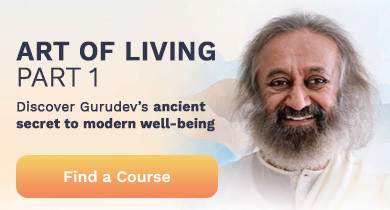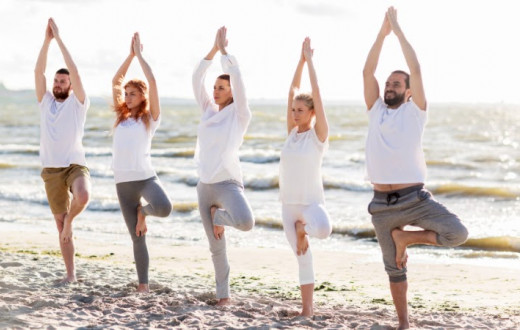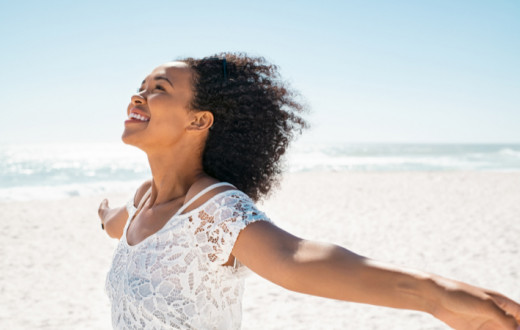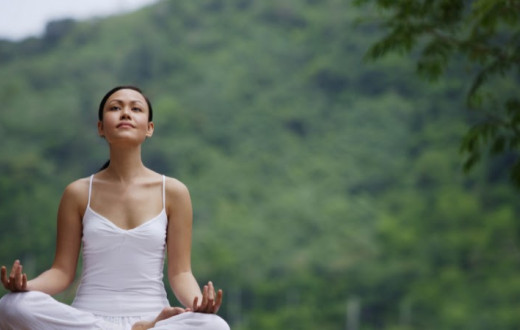
Almost half of all adults in the U.S. experience repeated occurrences of neck pain. But physical injury is not the only cause. You may ask “Can stress cause neck pain?” Stress can both start and worsen discomfort in the neck (also known as the cervical spine).
The first step in learning about neck pain as an effect of stress is to know what stress is. Stress results from a lack of energy. When your need to work exceeds your energy level, the result is stress. You notice stress in your body, mind, and emotions.
It can cause physical pain, especially in delicate, weight-bearing areas like the musculature of the neck and shoulders. Did you know that the average human head weighs 11 pounds? Your neck uses 20 different muscles to support and move it.
You can build your awareness by paying attention to your own feelings of stress. What activities seem to bring on feelings of stress in your life? Can you identify signals in your body and mind that tell you you’re stressed? What kinds of stress seem to trigger neck pain for you?
Awareness of the physical effects of stress
I've experienced increased neck pain after several car accidents in past years. But I realize that my physical injuries aren't the only source of neck pain or shoulder pain. Links between my emotions and my pain are well-documented by research. To relieve neck pain, both reducing stress and relaxing the neck and shoulders are vital.
You can ask yourself two questions. Do you tend to notice generalized pain or specific types of pain more often when you’re stressed? Once you observe the stress that enters your life, you can relate that with times when the first symptom of pain occurs. Describe the stress that's in your life whenever you notice neck muscles in pain.
The next question involves describing the pain in more detail. What types of physical pain do you have when you feel stressed? Is it only in the neck? Are there other related painful areas that you notice?
How does stress cause tension in your neck and shoulders?
When your body and mind experience a little bit of stress, it can motivate you to get things done. But at times, the amount of stress becomes larger than the energy you have to motivate yourself.
If you can't make constructive use of the stress, then it tends to show up in physical symptoms. Difficult emotions and muscle tension in vulnerable parts of the body are some of those ways. Your sleep patterns also could change. This lowers your resilience to stress even further.
Reacting to stress in harmful ways can involve bad habits. Some people develop habits like smoking, alcohol use, and others. Stress, bad habits, and chronic neck pain are a vicious cycle. Not only do bad habits and pain increase stress, but the opposite is true. Stress can also increase pain and the tendency to make unhealthy choices.
Lack of exercise and poor diet affects your mind. In turn, your neck, shoulders, and head respond to your mental state.
What to do for neck pain from stress
Relaxation techniques like meditation and breathwork can help you gain energy. Energy will help you avoid stress. SKY Breath Meditation is a very effective example of such a technique. It is powerful and easy to learn and practice daily.
Seek emotional support from friends, family, and others around you. They can help you relax and their love provides another source of energy. You can use their camaraderie to help you combat stress. Also, don't hesitate to find counseling from a healthcare professional who can listen to what is bothering you. Physical therapy can also start you on a healthy routine.
Spend time in nature and nurture positive relationships and attitudes. Knowing that the natural world is free and available to you makes it a stress-free and forgiving place. Walking with your attention on natural surroundings can boost your immune system. It also encourages you to relax tense muscles and adopt other healthy habits. They should include a wholesome diet as well as a smoke, caffeine, and alcohol-free lifestyle. In this way, you can focus on building resilience to stress.
Exercise
In addition to any physical therapy, walking outdoors is a great form of exercise. Yoga posture practice is also gentle, relaxing, and energizing. The two complement each other. The easiest yoga poses for stress and anxiety also relieve neck pain. You can perform these poses as part of a daily anti-stress routine. Here are a few examples:
Neck Rolls (Kantha Sanchalana) : With gentleness, take the kinks of tension out of your neck. Every workday gives your cervical spine a reason to stress out. So, attend to neck stiffness with soft stretching and flexing!
Child's Pose (Shishuasana) : Gain the ultimate relaxation in the child’s position. Relieve tension in your head and neck muscles by massaging your forehead on your yoga mat. Stretch your arms out in front of you for added relief in the shoulders and neck.
Cat and Cow Stretch (Marjariasana). Flexing and extending your torso can energize your spine from the neck to the base. The intentional shifting helps you breathe in sync with your movement. That gentle motion releases and relaxes your cycle of stress and neck pain!
Thread the Needle Pose (Urdhva Mukha Pasasana). You can assume this pose from table position, by threading one arm under the torso to the opposite side. Then rest your head and neck on the floor. Then look over each shoulder and up at the ceiling on either side, extending one arm at a time.
Standing Forward Bend (Hastapadasana). Your neck joints will love the release of falling forward into this posture. You can release your stiffness from the hips up as your upper body becomes like a rag doll. Come out of it with the cervical vertebrae and head last.
Angle Pose (Konasana 1). In this pose, you look up into your raised palm. You stretch your entire left and right sides. Your neck will appreciate the attention you give to stretching one side and then the other.
Triangle Pose (Trikonasana). This pose goes further to stretch the sides of your body. Without straining, with your feet apart, you lower your torso over one knee at a time. One hand holds your front leg. The opposite arm stretches up as you look into your raised palm.
Warrior Pose (Virabhadrasana). Build confidence and resilience as you relax into your strength. In this pose, your arms come up as you bend one knee and turn your head to look over your forward arm. Your neck feels invincible in Warrior Pose.
Fish Pose (Matsyasana). This supine pose opens the chest and encourages deep breathing. It relieves tension in the neck and shoulders and strengthens the upper back. Your whole upper body will be too relaxed to worry!
Corpse Pose (Shavasana). The ultimate restorative posture is the best way to finish a relaxing yoga session. By tensing and releasing all your muscles one by one, and then letting go, you absorb the benefits of your practice. Your neck will thank you.
Take the time to get to know your neck muscles and your sources of stress. With practice and patience, you can have a pain-free neck and a stress-free life! You’ll feel better all around!
For more ways to relieve emotional stress and neck pain, check out Beyond Breath - A FREE Breath and Meditation Online Session With a Live Instructor. You’ll start to learn about SKY Breath Meditation. It has helped millions of people around the world.





























